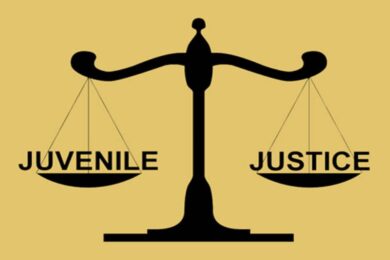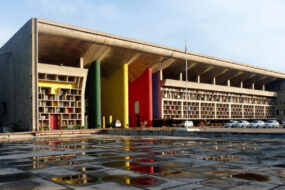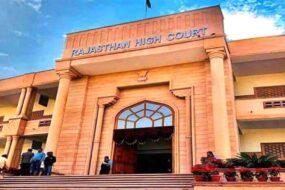
The Punjab & Haryana Bar Council warned that collaborating with influencers to advertise legal services undermines professional ethics and is prohibited.
Background of the Case
In 2023, Rohan Mehta, a practicing lawyer in Delhi, became widely popular on social media platforms like Instagram, YouTube, and LinkedIn by posting short legal videos, reels, and Q&A sessions aimed at educating the public on everyday legal issues—ranging from “how to file for mutual divorce” to “getting bail in NDPS cases.” His accounts gained over 1 million followers, and he received sponsorships and brand deals.
While his content was largely educational, critics—including senior advocates and members of the Bar Council of Delhi—argued that his posts blurred the line between awareness and advertisement, violating Rule 36 of the BCI Rules, which prohibits lawyers from soliciting work through advertisements, including indirect methods.
In response, the Bar Council of India (BCI) issued a show cause notice to Mehta and a few others, leading to a broader hearing before the BCI disciplinary committee. The matter garnered national attention as it raised key questions about freedom of expression, professional ethics, and digital law practice.
Court Proceedings
While the case originated as a disciplinary inquiry before the BCI, a writ petition was also filed before the Delhi High Court by the affected lawyers challenging the constitutional validity of Rule 36 in the context of online education and digital platforms.
Key proceedings included:
The BCI panel reviewed social media posts, sponsorship agreements, YouTube monetization evidence, and comments from followers indicating possible commercial inducement.
The petitioners argued that Rule 36 is outdated and needs to be interpreted in light of the right to information and freedom of speech (Article 19(1)(a)).
The matter was bifurcated: the disciplinary action proceeded before BCI, while the High Court examined constitutional and regulatory aspects.
Arguments Presented
Bar Council of India’s Arguments:
Rule 36 of the Standards of Professional Conduct and Etiquette strictly prohibits self-promotion, direct or indirect, by advocates.
The social media activities of influencers like Mehta constitute “solicitation” and “indirect advertisement”, damaging the dignity and decorum of the legal profession.
Allowing lawyers to monetize their popularity through legal content would create a “legal influencer economy” and unfair competition among advocates.
Stated that legal information can be shared, but engagements that hint at personalized services or contain commercial intent cross ethical boundaries.
Petitioner Lawyers’ Arguments:
Rule 36, framed in the pre-internet era, is ambiguous and overly restrictive in the digital age.
Lawyers have a constitutional right to share legal knowledge, especially when it is non-solicitative and educational.
The public has a right to access free legal awareness content, especially in a country with limited access to legal aid.
Claimed that monetization is platform-based (like YouTube ad revenue) and not a direct service advertisement.
Suggested that the BCI should regulate such activities through clear digital content guidelines, not blanket bans.
Court’s Decision
In May 2024, the Bar Council of India passed a formal order banning advocates from advertising legal services on social media platforms, reinforcing that influencer-style content with monetization or client engagement violates professional ethics.
Key BCI Rulings:
Social media posts that mention legal success rates, promote services, or hint at availability for hire amount to advertisement.
Educational videos are allowed, provided they are free of commercial gain, promotional language, or solicitation.
Directed all State Bar Councils to review similar conduct by advocates in their jurisdiction and issue advisory guidelines.
Issued a three-month suspension to Rohan Mehta for violation of Rule 36, while allowing him to reapply for reinstatement after the period.
Referred the constitutional challenge to Rule 36 to the Law Commission and Ministry of Law and Justice for a broader policy review.
Implications of the Ruling
The case sets a major precedent in the regulation of digital legal practice:
Reaffirms that advocacy is a noble profession, not a trade, and must be shielded from market-style promotion.
Sparks a broader debate on updating legal ethics for the digital age, especially regarding LinkedIn, YouTube, podcasts, and newsletters.
Highlights the BCI’s resolve to regulate professional conduct, even outside the courtroom.
May force lawyers engaged in content creation to shift to anonymous legal education platforms or collaborate with NGOs/educators.
The decision could shape future amendments to the BCI Rules, balancing public interest in legal education with professional dignity.
Conclusion
The ruling in Bar Council of India v. Advocate Rohan Mehta & Ors. represents a clash between tradition and modernity in the legal field. While the BCI upheld professional ethics by banning influencer-style self-promotion, it also recognized the growing need to revisit and modernize ethical codes. As technology continues to transform law, this case may serve as a catalyst for reform, ensuring that ethics evolve without silencing legal knowledge sharing.








No Comments